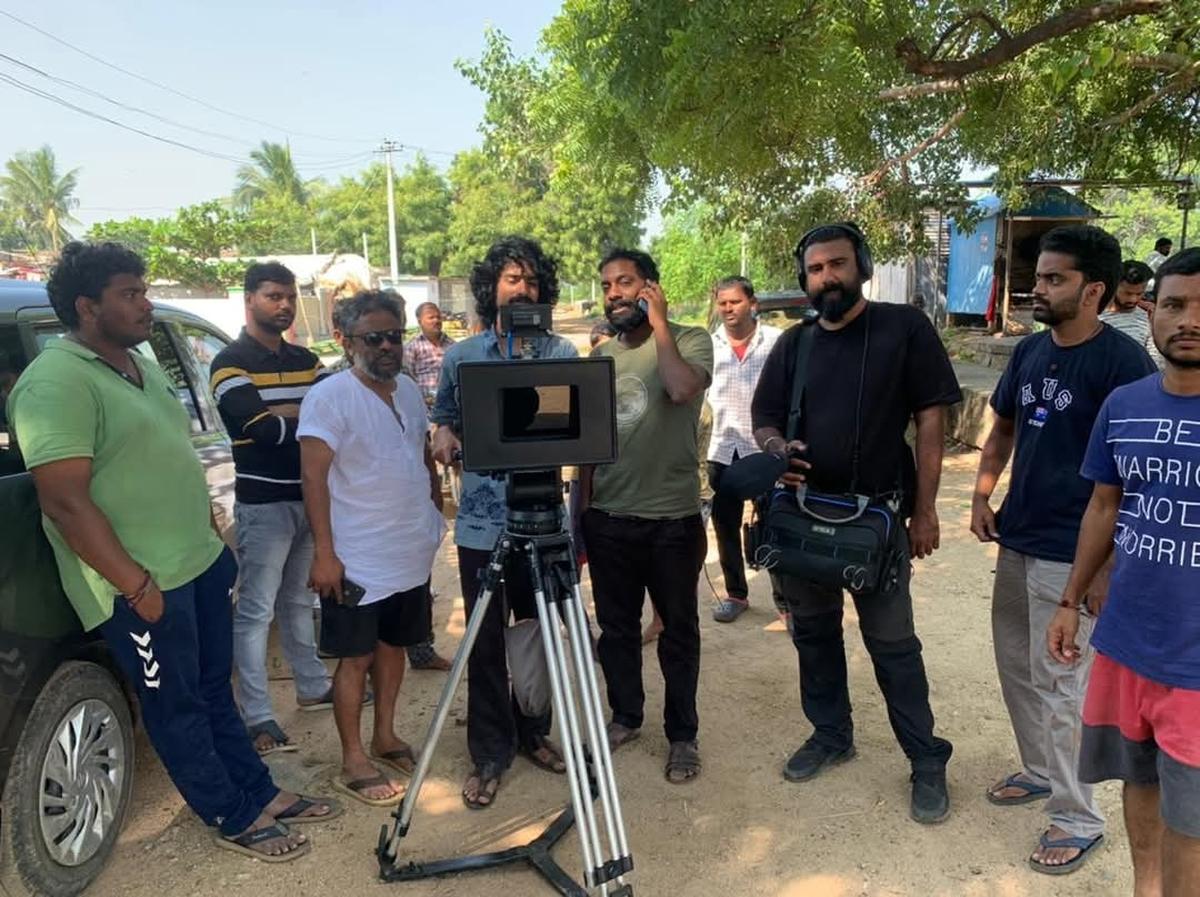[ad_1]
“I’ve never edited a film as much as this one, and we’ve never reshot scenes to fine-tune a film the way we did this time,” says director Rohit Penumatsa of the Telugu buddy film Gopi Galla Goa Trip (GGGT), which releases on November 14. He has co-written and co-directed it with Camp Sasi. For followers of Telugu indie cinema, Rohit and Sasi are familiar names through their shorts, series, and digital releases.
GGGT follows the theatrical release of their 2024 films Double Engine and Sheesh Mahal. While it retains their indie approach to storytelling, it benefits from a slightly larger budget, jointly produced by Rasta Films, Auraulis Arts, Avval Number Productions and Rohit and Sasi’s Avanti Cinema.
Described as a road-trip film seen through the eyes of youngsters from a hamlet in Gadwal, Telangana, the cast includes Ajith Mohan, Raju Shivaratri, Pawan Ramesh and Monika Busam, with Sasi and producer Sai Kumar playing key roles.
Goa in Indian cinema often evokes Farhan Akhtar’s Dil Chahta Hai or Tharun Bhascker’s Ee Nagaraniki Emaindi. Sasi also recalls earlier depictions — from Kamal Haasan’sVettri Vizha and Chiranjeevi’sTrinetrudu to Venkat Prabhu’s Goa and indie filmmaker Sandeep Mohan’s Love Wrinkle Free — while Rohit remembers the unvarnished Goa of Shyam Benegal’s Trikal and portions of Anurag Kashyap’s Bombay Velvet.
GGGT, they say, is a rooted fairytale with an undercurrent about sexuality: “Some men think of Goa only in terms of alcohol and fair-skinned women; our characters are no different.”
Aware of the sensitivities around depicting the fixation with fair skin, Sasi says they questioned whether the film was presenting a viewpoint or crossing into racism. The film began three years ago, was delayed by funding issues, and a teaser released last year cheekily carried the line, “this teaser is racist.” Online responses reassured them they had struck the intended tone. “It’s essentially a story of friends, like Double Engine. Our films inevitably become slice-of-life dramas,” they say, adding that they avoided profanity.

Sasi and Rohit with the cast and crew on location
| Photo Credit:
Special Arrangement
Producer Sai Kumar, who moved to Goa during the pandemic, became the film’s strongest supporter. His backing ensured a theatrical release. A planned 15-day shoot stretched to 21, after filming first in Gadwal and then in Goa. They had earlier shot Double Engine in 12 days. “We miscalculated,” laughs Rohit. The plan was to shoot Double Engine within seven days. Their indie working style, small crews, sync sound, rapid schedules, helped keep the production afloat.
Sai notes that the film’s depiction of Goa departs from tourist clichés. When funds ran short, he took up a job to support the film himself. “We used Red cameras and anamorphic lenses. We didn’t want it to look like a low-budget indie.”
Despite a loyal cinephile following, Rohit and Sasi are candid about the challenges. “Double Engine and Sheesh Mahal were flops in theatres,” Sasi says. On tough days, they ask themselves why they continue. “I’m now making a film on an iPhone,” says Rohit. “I wondered why, until I saw some of the footage; it gave me the push I needed.”
Sasi adds, “When I see people going about their daily routines, I realise how fortunate we are to do what we love. Many directors never get to make the film they imagine. We’ve been lucky.”
For them, the urge to tell stories remains the driving force. Rohit sums it up with a Stanley Kubrick line: “Anyone who has ever been privileged to direct a film knows that, although it can feel like trying to write War and Peace in a bumper car, when it finally clicks, there are few joys that equal it.”
Published – November 13, 2025 03:23 pm IST
[ad_2]
‘A fairytale from Telangana to Goa’: Rohit and Camp Sasi on ‘Gopi Galla Goa Trip’






